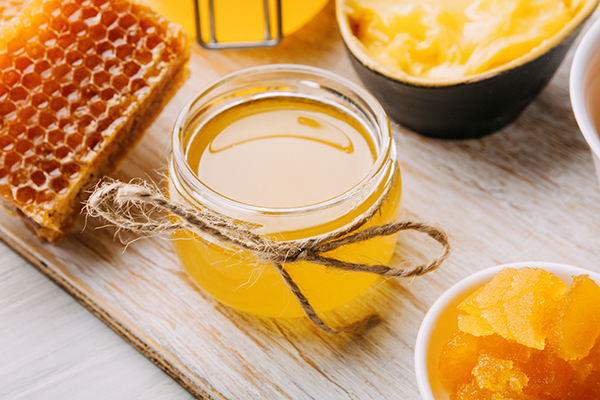 Parler
Parler Gab
Gab
- Vitamin B12: Surprisingly, the lower quality cyanide-based form of B12 (cyanocobalamin; we prefer methylcobalamin for general health) has been found to be 96% effective in lessening symptoms of canker sore. A 2008 study concluded: "Cyanocobalamin treatment maybe beneficial for patients with RAU even when serum cobalamin levels are normal. We suggest that higher serum cobalamin levels should be attained in patients with RAU for mucosal protection."[2]
- Eliminate Cow's Milk Products: While there are plenty of reasons to avoid cow's milk protein (butter being relatively benign and beneficial, being free of the highly antigenic milk proteins), for canker sore, a 2012 study found that having an immune reactivity to cow's milk proteins is associated with increased occurrence of canker sore. They reported: "These results indicate the strong association between high levels of serum anti-SCMP IgA, IgG, and IgE antibodies, especially to caseins: α-, β-, and κ-casein from cow's milk and clinical manifestations of RAU [recurrent aphthous ulcer]."[3]
- Garlic (Allicin): The primary active component of garlic, known as allicin, has been suggested to be an ideal anti-canker sore remedy. As documented in a 2008 review on the topic, garlic "decreases inflammatory factors secretion, reduces the migration of neutrophils, inhibits bacterium and virus, antagonizes oxidation and regulate immunity. By these bioactivities of anti-inflammation, anti-microbial activity, anti-oxidation and immunomodulation, the allicin may be an effective therapeutic candidate to control the pain, promote ulcer healing and prevent the recurrence of RAU [recurrent aphthous ulcer]."
- Laser Therapy: A study found that low-level laser therapy reduced the pain and the inconvenience of eating, drinking, and brushing teeth for patients with RAS [recurrent aphthous ulcers], compared with placebo.[4]
- Eradicate Helicobacter Pylori Infection: A 2014 meta-analysis found that H. pylori infection is associated with an increased risk of RAS [recurrent aphthous ulcers], and that the eradication of H. pylori in the stomach may promote relief of RAS [recurrent aphthous ulcer] symptoms and healing of oral ulcers, and even prevent the occurrence of RAS."[5] For natural ways to eradicate H. pylori, take a look at our extensive database on the subject: 50+ Natural Ways to Kill H. Pylori.
- Avoid Gluten: There are over 200 clinically confirmed reasons to avoid gluten. But regardless of whether or not you think you are sensitive, for those suffering from canker sores, gluten avoidance is a good strategy. A 2008 study found, "Oral mucosal lesions may be markers of chronic gastrointestinal disorders [caused by gluten], such as those causing malabsorption." The researchers concluded: "The epidemiological association found between coeliac disease and aphthous-like ulcers suggests that recurrent aphthous-like ulcers should be considered a risk indicator for coeliac disease, and that gluten-free diet leads to ulcer amelioration."[6]
RFK Jr celebrates an infamous Dem gay rights leader Harvey Milk who was accused of grooming minors
By News Editors // Share
Gingko Biloba: A ‘living fossil’ with life-extending properties
By News Editors // Share
WHO tyranny threatens health sovereignty
By News Editors // Share
The WHO’s pandemic treaty and a bird flu crisis are both arriving at the same time
By News Editors // Share
Netanyahu ‘invokes another genocidal biblical reference’ while scolding the ICC
By News Editors // Share
Surgeon downplays risky ‘gender-affirming’ surgeries as an ‘adventure for young people’
By News Editors // Share
Governments continue to obscure COVID-19 vaccine data amid rising concerns over excess deaths
By patricklewis // Share
Tech giant Microsoft backs EXTINCTION with its support of carbon capture programs
By ramontomeydw // Share
Germany to resume arms exports to Israel despite repeated ceasefire violations
By isabelle // Share










